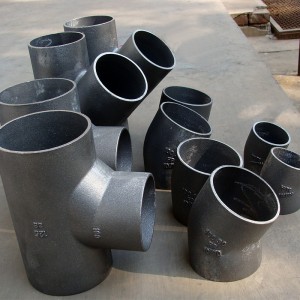- Afrikaans
- Albanian
- Amharic
- Arabic
- Armenian
- Azerbaijani
- Basque
- Belarusian
- Bengali
- Bosnian
- Bulgarian
- Catalan
- Cebuano
- China
- China (Taiwan)
- Corsican
- Croatian
- Czech
- Danish
- Dutch
- English
- Esperanto
- Estonian
- Finnish
- French
- Frisian
- Galician
- Georgian
- German
- Greek
- Gujarati
- Haitian Creole
- hausa
- hawaiian
- Hebrew
- Hindi
- Miao
- Hungarian
- Icelandic
- igbo
- Indonesian
- irish
- Italian
- Japanese
- Javanese
- Kannada
- kazakh
- Khmer
- Rwandese
- Korean
- Kurdish
- Kyrgyz
- Lao
- Latin
- Latvian
- Lithuanian
- Luxembourgish
- Macedonian
- Malgashi
- Malay
- Malayalam
- Maltese
- Maori
- Marathi
- Mongolian
- Myanmar
- Nepali
- Norwegian
- Norwegian
- Occitan
- Pashto
- Persian
- Polish
- Portuguese
- Punjabi
- Romanian
- Russian
- Samoan
- Scottish Gaelic
- Serbian
- Sesotho
- Shona
- Sindhi
- Sinhala
- Slovak
- Slovenian
- Somali
- Spanish
- Sundanese
- Swahili
- Swedish
- Tagalog
- Tajik
- Tamil
- Tatar
- Telugu
- Thai
- Turkish
- Turkmen
- Ukrainian
- Urdu
- Uighur
- Uzbek
- Vietnamese
- Welsh
- Bantu
- Yiddish
- Yoruba
- Zulu
Jul . 27, 2024 21:14 Back to list
Efficient Heating Solutions Using Condensing Oil Furnaces for Residential and Commercial Spaces
Understanding Condensing Oil Furnaces Efficiency and Innovation
In recent years, the demand for more efficient heating solutions has led to significant advancements in furnace technology. Among these innovations, the condensing oil furnace stands out as a highly efficient option for homeowners seeking to reduce energy costs while minimizing their environmental impact. This article explores how condensing oil furnaces operate, their benefits, and why they may be the ideal choice for heating residential spaces.
How Condensing Oil Furnaces Work
Condensing oil furnaces operate on a similar principle to traditional oil furnaces but with increased efficiency. In a standard oil furnace, fuel is burned to produce heat, which is then distributed throughout the home. However, this process often results in wasted energy, as exhaust gases are expelled into the atmosphere without recovering valuable heat energy.
In contrast, condensing oil furnaces utilize a two-stage heating process. First, the furnace burns oil, creating heat and producing exhaust gases. The system then captures these gases and funnels them through a secondary heat exchanger. This component extracts additional heat from the exhaust before it is vented outside. As a result, condensing oil furnaces can achieve efficiency ratings of up to 95% or more, significantly reducing the amount of fuel needed to maintain a comfortable environment.
Benefits of Condensing Oil Furnaces
1. High Efficiency One of the most significant advantages of condensing oil furnaces is their remarkable efficiency. By utilizing a secondary heat exchanger, these furnaces maximize the amount of usable heat generated from oil, thus lowering fuel consumption and energy bills.
condensing oil furnace

2. Environmental Impact As energy efficiency improves, emissions associated with heating oil decrease as well. Condensing oil furnaces produce fewer greenhouse gases compared to their traditional counterparts, making them a more environmentally friendly choice for homeowners concerned about climate change.
3. Cost Savings While the initial investment in a condensing oil furnace may be higher than a conventional model, the long-term savings on fuel costs can be substantial. Homeowners can expect lower energy bills and reduced maintenance costs, thanks to the advanced technology that minimizes wear and tear on the system.
4. Versatile Installation Condensing oil furnaces are suitable for various residential settings. They can be installed in homes with existing oil heating systems, making them a practical choice for those looking to upgrade without significant renovations.
5. Improved Comfort Levels The efficiency of condensing oil furnaces translates to more consistent heating throughout a home. By maintaining optimal temperatures and reducing drafts, these systems enhance overall comfort, particularly during the colder months.
The Future of Heating with Condensing Oil Furnaces
As technology and environmental considerations continue to evolve, condensing oil furnaces are poised to play a crucial role in the future of residential heating. The transition towards high-efficiency systems aligns with broader energy conservation goals and regulatory standards aimed at reducing fossil fuel dependency.
In conclusion, condensing oil furnaces represent a paradigm shift in the heating industry. Their ability to harness energy more effectively not only benefits homeowners through reduced energy costs but also contributes positively to the environment. For those considering a new heating system, investing in a condensing oil furnace is a step towards achieving both comfort and sustainability in the home. As we move forward, embracing such innovative technology will be vital in overcoming challenges associated with energy consumption and environmental responsibility.
-
Premium Cast Iron Water Main Pipe: Durable, Corrosion-Resistant
NewsAug.03,2025
-
Durable Cast Iron Water Mains | AI-Optimized Systems
NewsAug.02,2025
-
High-Efficiency Propane Boiler for Baseboard Heat | Save Energy
NewsAug.01,2025
-
Premium Source Suppliers for Various Gray Iron Castings
NewsJul.31,2025
-
Durable Cast Iron Water Main Pipes | Long-Lasting
NewsJul.31,2025
-
High-Quality Cast Iron Water Main Pipe for Durable Infrastructure
NewsJul.30,2025


